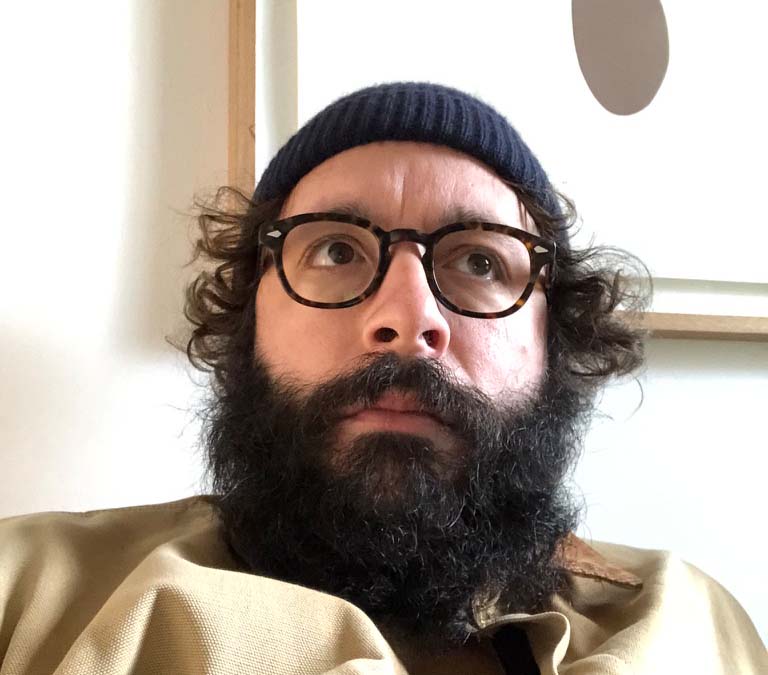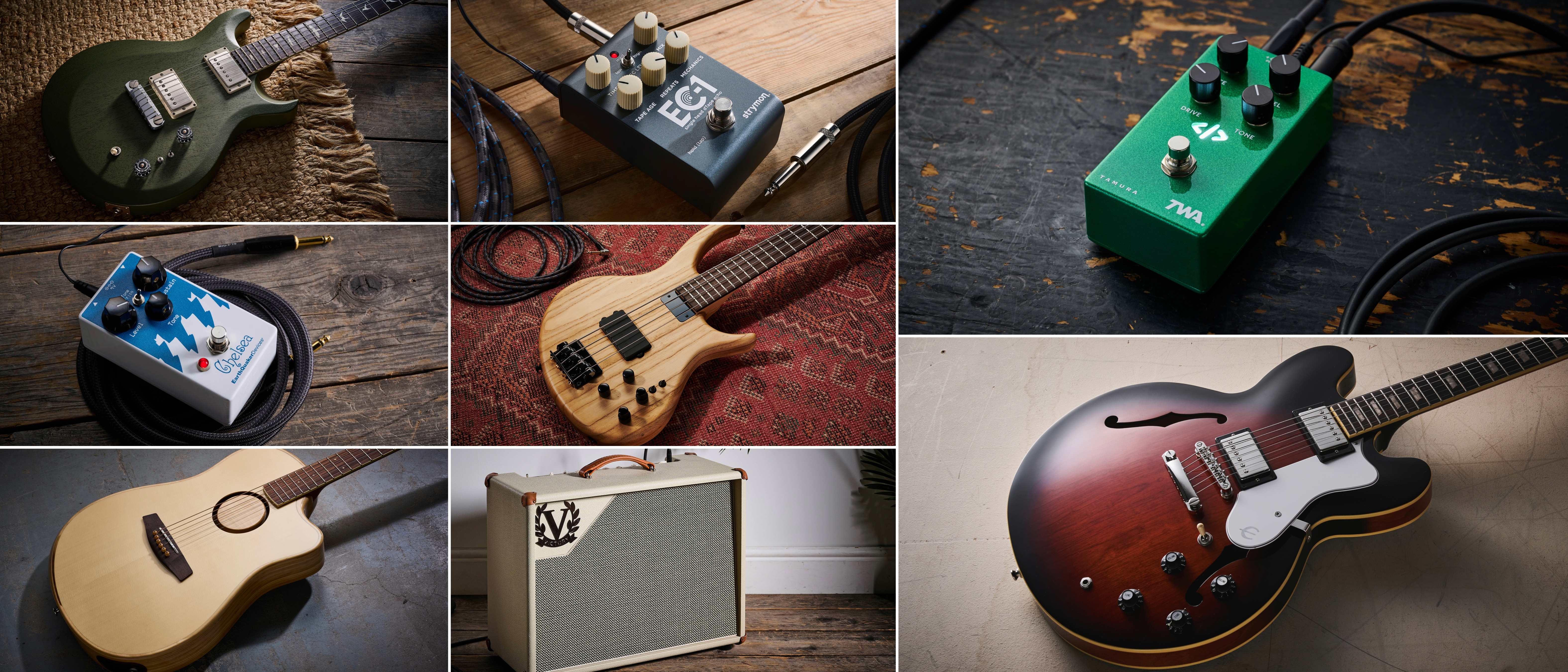Elder's Nick DiSalvo: “We anticipated spending more time jamming and recording actual songs. But we just got completely lost in all the gear!”
The progressive guitarist and vocalist on the magic of analog, finding nirvana in a trinity of gain stages, and bringing compositional expansionism to heavy rock with new album Omens
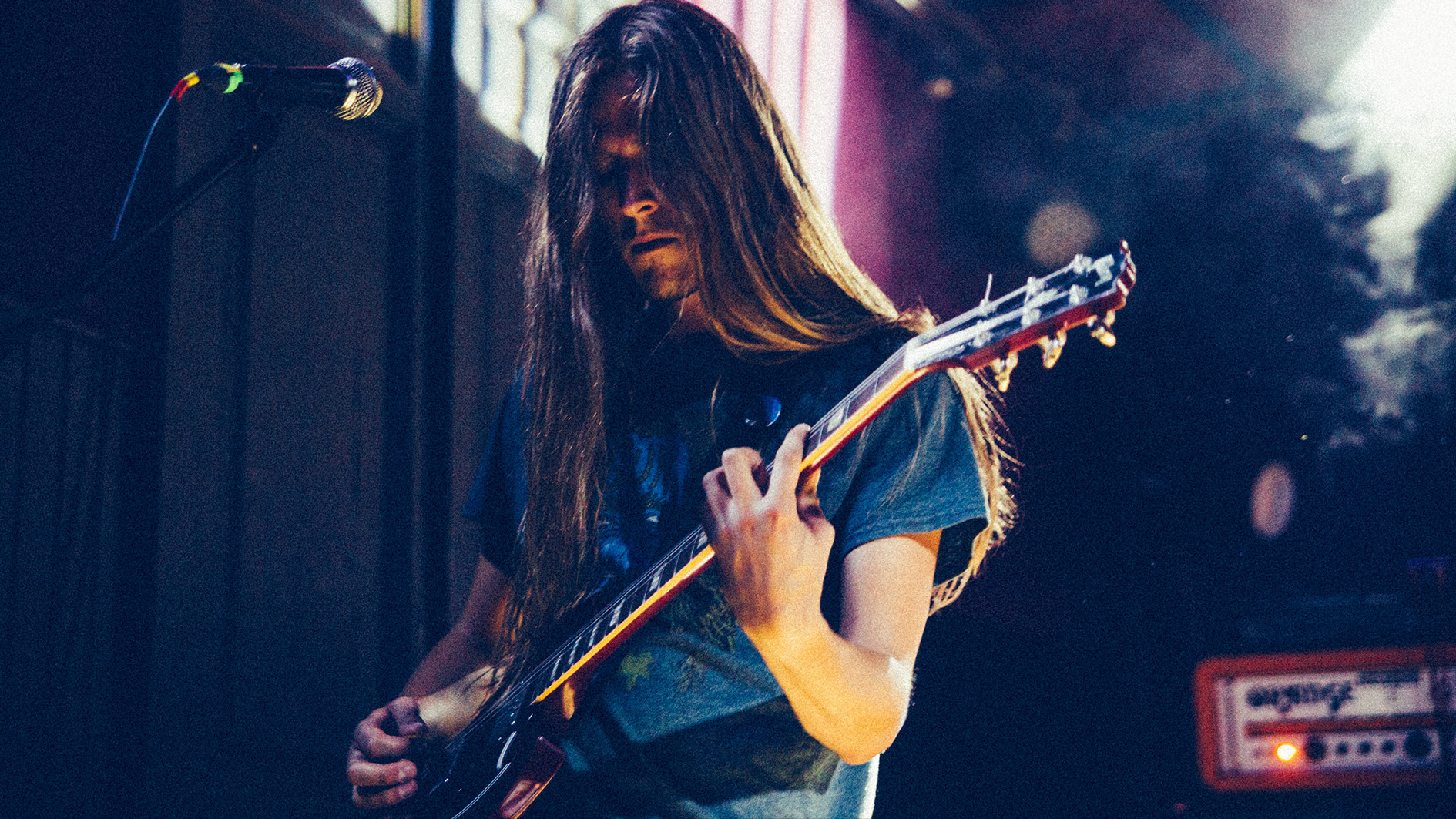
There is something gratifyingly old-school about how Elder recorded Omens. The prog-come-psych rock quartet piled into Studio Black Box, a live-in studio some three hours by car from Paris, and lived out a sort of contemporary Hard Day’s Night scenario in which the band ate, slept and dreamt their sound.
“We were working 12 hours every day and then reviewing the work that we had done afterwards, eating something, falling asleep, waking up and doing the same thing the next day,” explains guitarist Nick DiSalvo from his home in Berlin, Germany. “We had done weird shit in the past. We went to a mountain-top cabin in the winter and recorded, and hung out there at night, but this is the first time we were actually on-premises, and you really get involved with the music on a completely different level.”
That’s the thing with creating something big, oftentimes you’ve got to bury yourself in the work, go to the mattresses, hunker down, let the ideas stew in their own juices until the whole thing clarifies.
“You don’t do anything except for spending a couple of hours sleeping,” says DiSalvo, pausing. “And even when you are sleeping, you are just, like, dreaming about what you are doing. It’s kind of crazy! It’s in your mind and under your skin, and not all in a comfortable way either.”
Omens was recorded under the expert guidance of engineer Peter Deisel, and mastered in Chicago by Carl Saff in Chicago. It is of a piece with Omen’s discography, which is to say that its heaviness is leavened by its scope, with compositions that stretch out across different moods and atmospheres, solid, granites riffs giving way to wide-open spaces.
“I guess we thought it would be funny if it sounded like if Yes, in the ‘70s, tried to make a metal album, or something like that,” laughs DiSalvo.
He’s only half-joking. There’s a ‘70s vibe to Omens, a compositional patience to DiSalvo and Michael Risberg’s guitar playing that takes the scenic route, resolving itself in time, and leaving space for song to breath, and for details such as the contributions of Fabio Cuomo, who guests on Rhodes piano.
All the latest guitar news, interviews, lessons, reviews, deals and more, direct to your inbox!
Perhaps, above all, Omens is an exercise in dynamics, in stretching the rock/metal paradigm, holding tight in the surf until its time for the wave to hit you… Something like that. Oh, shoot! Just listen to the thing. It’s a trip, a journey, and as will all rock records that journey starts at the beginning, with a guitar tone…
The whole sound of Omens is incredible, really ‘70s analog. There’s gain, but your guitar tone is never super-saturated. What did you use for dirt?
“We began the session by pretty much taking out all the fuzz pedals and all the overdrives and gain stages that the studio had, as well as our own, and I started tracking the record basically as three different gain stages. One just being a clean amp. The second being a preamp booster - I was using a Benson preamp, an amp-in-a-box preamp pedal.
We really anticipated spending a lot more time jamming and recording actual songs
"And the studio had a really weird, I think it was a Russian-built Sunn O))) custom pedal, as in Sunn O))) the band, but not like this Life Pedal that EarthQuaker Devices recently put out. It was this really weird tube preamp pedal. It actually had this little tube on the inside of it.
"And so we were using those two stacked for the really heavy gain. Later down the line we discovered a Fairfield Circuitry overdrive pedal - I forget the name - that we really liked, so we threw that on there, too.”
Was there a lot of experimenting with gear?
“Honestly, that is one of the main reasons the album only ended up being 55 minutes long because I think in written material we had well over 70 minutes, and we really anticipated spending a lot more time jamming and recording actual songs and stuff. But we just got completely lost in all the gear that was there. We ended up spending way too much time tweaking that kind of stuff. [Laughs]”
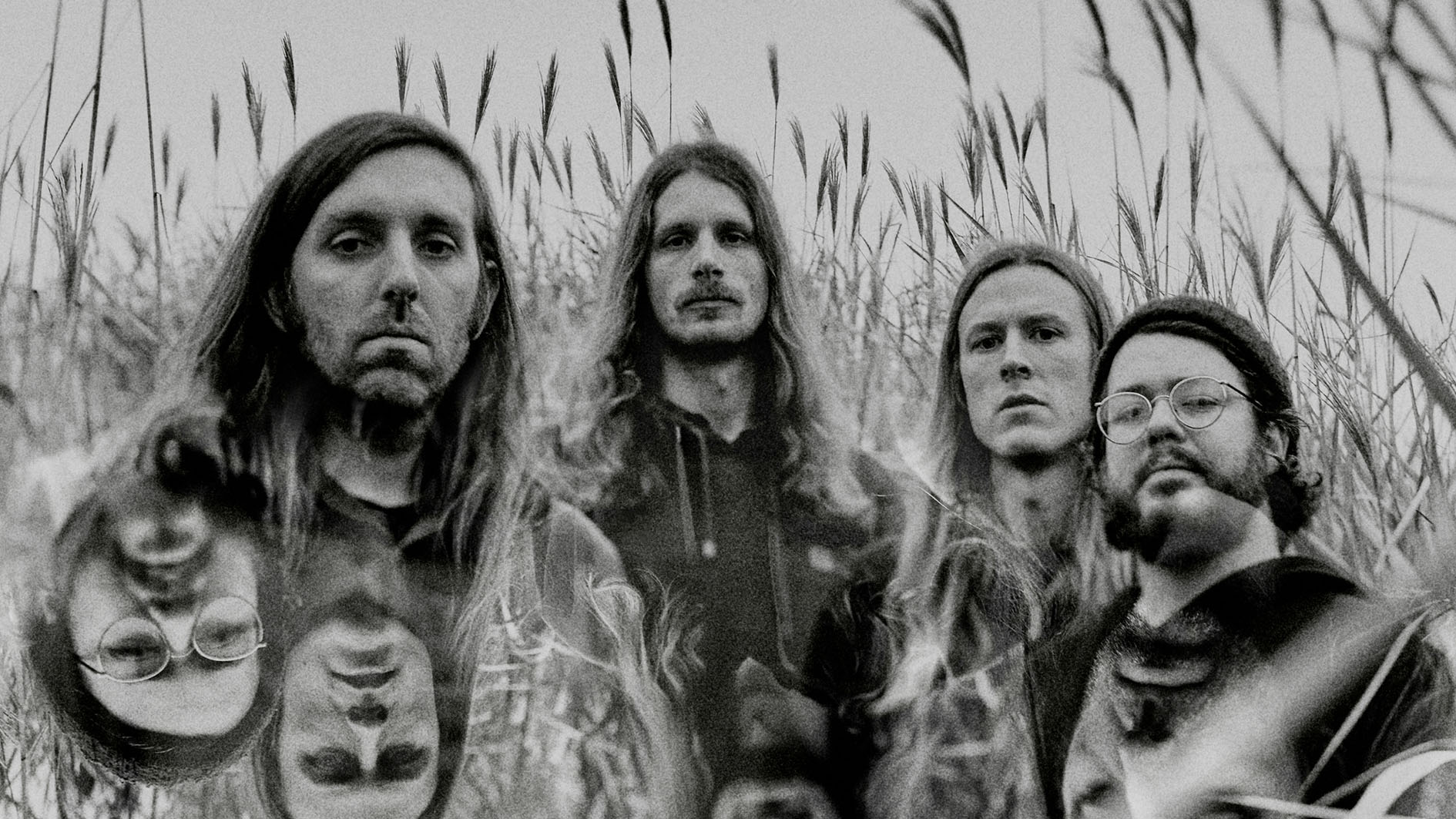
What else is on there?
“A [Bixonix] Expandora pedal, which they had lying around, which was really funny; I have never got my hands on one of those, and that was one of those super-rare ones, too, with the external dip-switches. I feel in love with that thing, just some really obnoxious fuzz tones. Those were the main pedals that made it on to my guitar tracks, which sounds pretty ridiculous because that’s a shit-ton of gain pedals.
"But it’s funny, if you listen to the record, and I don’t know whether because we were running everything though an analog board with analog preamps and outboard stuff, and the microphones were a little bit older, the whole thing sounds very tame. You wouldn’t tell that we were fucking blasting heavy amounts of gain because the record still has a very rock sound to it.”
Sometimes what comes out of the board is so much different to how it is in the room.
This is a record where there is a lot of ups and downs, peaks and valleys dynamics-wise
“Yeah, for sure, it really does. We worked with more analog equipment that really colors the record’s sound than we have in the past, and I think it was a surprise just hearing what different gear can impart into your record’s sound. But that was one of the reasons we really wanted to go to this studio in the first place. We wanted to go to a studio that makes good rock records, and we wanted to see what a guy with an ear for rock could do for our music.”
There is such a clarity and a dynamic quality to your tone. Was that something you placed an emphasis on?
“Yeah, totally, and that was something that was fun to experiment with, having some amps that worked really well clean and some super-dirty.
"On all the previous records, I had been completely cranking an amp and using a volume pedal to attenuate, or maybe even using some cleaner stuff with another amplifier, but this is a record where there is just a lot more ups and downs, peaks and valleys dynamics-wise.
"So I ended up using more of a pedal platform type thing, with really loud clean amps and putting a bunch of pedals on it and seeing what happened. That was definitely fun.”
What amps did you use?
“Well we brought our own equipment with us, which was two Hiwatt Custom 50s, and a homemade amp that was like a JTM45 that [Michael] built himself, but we actually got wrapped up in playing one of the old Vox AC30s. We both ended up using stereo rigs and blending the two channels. Michael ended up using his JTM45 and a Vox amp, and I was using a Fender Bandmaster for most of the time.
“I was really resistant to using anything other than the exact amplifier and the exact sound that I had been rehearsing with but Peter is a real good engineer with a really good ear for what might work well and he was always running into the live room, tweaking things, and saying, ‘Well let me try plugging another amp in and doing an A/B with these two and see what you think.’
“So yeah, we both ended up using stereo rigs the entire time, and our bassist ended up doing the same thing with an old OR-50, but like a ‘70s Orange, and I think his Hiwatt 200. So there were six amps going at the one time when we were tracking guitars!”
That’s living the dream. What about guitars?
When Michael joined the band, he wasn’t familiar with being a loud, heavy guitarist. We had to sort of teach him how to do that, which is funny!
“I was using my Dunable Yeti, which I had made for me a couple of years back. I was using my [Gibson] ES-335 for some of the clean stuff. I think those were the only two guitars I brought with me.
"Peter Deimel, his brother is actually the maker of Deimel Guitarworks, so we had a bunch of them that we ended up using, kind of like a Jaguar or Jazzmaster spin-off that we used for some parts. And Mike used his Telecaster, which is again a guitar that he built himself. So there’s no brand; it’s just a Telecaster. Sometimes he jammed on those Deimels.”
How do you and Michael guitar styles complement each other?
“It’s kinda weird because I come from a different background. I am just exclusively a self-taught guy and started plucking away to my favorite songs when I was a kid, and ended up cobbling together a style. I am a rock guitarist, y’know! I can hit the strings heavily and I have that kind of feeling as a player. Michael came from more of a jazz background so he has a much more delicate and overall more dynamic touch.
“He has a bunch of strengths, everything from picking to chord progressions, that I don’t have. And vice-versa. I can carry the heavy side of our music very well, and if there is anything that could use a lighter touch, or just a more dynamic touch, I always throw that at him because he does a great job of conveying that.
"When joining the band, he wasn’t familiar with being a loud, heavy guitarist. We had to sort of teach him how to do that, which is funny! He is really good at doing the atmospheric parts. He is a great partner if you want to jam with someone.”
It works really well, and also the Tele and Dunable is a good combo.
“He has just got a different tonal palette to me. I’ve always been the humbucker and the huge tube amp, the Sound City or Hiwatt kind of thing. At the end of the day, I think it’s just a cleaner sound and a heavier sound coming together and divvying up the parts based on who can perform what, and then everything comes through to make the frequency scope as rich as possible.”
Did you write the album with the keys and Rhodes piano in mind?
“I would say that 75 per cent of everything that you hear on the record was already pre-written in some way, shape or form, but we called Fabio in because I am a very, very rudimentary keyboard player and oftentimes I write most of my keyboard stuff using MIDI.
"He’s just like an amazing pianist, like an all-round amazing musician, and just showed him the parts, he reinterpreted them, and then of course a lot of the other stuff we just said, ‘Hey man, just sit in and jam on it and see what happens.’ He ended up coming up with a lot of cool things that just peaks the atmosphere.”
It’s kind of funny, as a guitarist, when you get a really good pianist sitting in with you. It’s almost like there is suddenly a grown-up in the room…
Doing more with the space you've got leads to a better record
“That’s really funny you say that! Yeah, Fabio, aside from just being a ray of sunshine dude, an outgoing Italian guy, he was that grown-up in the room for sure, because he is a conservatory-studied musician. We would just have to hum him a part.
"He’s in a room with a bunch of self-taught rock musicians - and he can do that too - but he understands music theory a thousand times better than we do. We would just hum and he’d take out his little notebook of sheet music and transcribe for himself and then do it, first take! It was pretty amazing to watch.”
You are a two-guitar band. There’s a lot going on. But it sounds like you leave space for those parts, and for the song to breathe.
“You are absolutely right. The music, there are a lot of things going on in it. The mix gets very crowded, and that is definitely another reason why we really wanted to make sure there was a level of clarity, a level of headroom, and that the dynamics were preserved, and that it wasn’t mixed too loud or mastered too loud. You can actually hear everything that is going on.
"There were a lot of things we ended up doing completely differently, or there were leads that we left off. There was a whole big piano line that we ended up discarding because it ended up that we just wanted some empty space. Doing more with the space that you have got, and being aware of how all of that ends up affecting the final product and the listener, I think it leads to a better record. I think it led to a better record.”
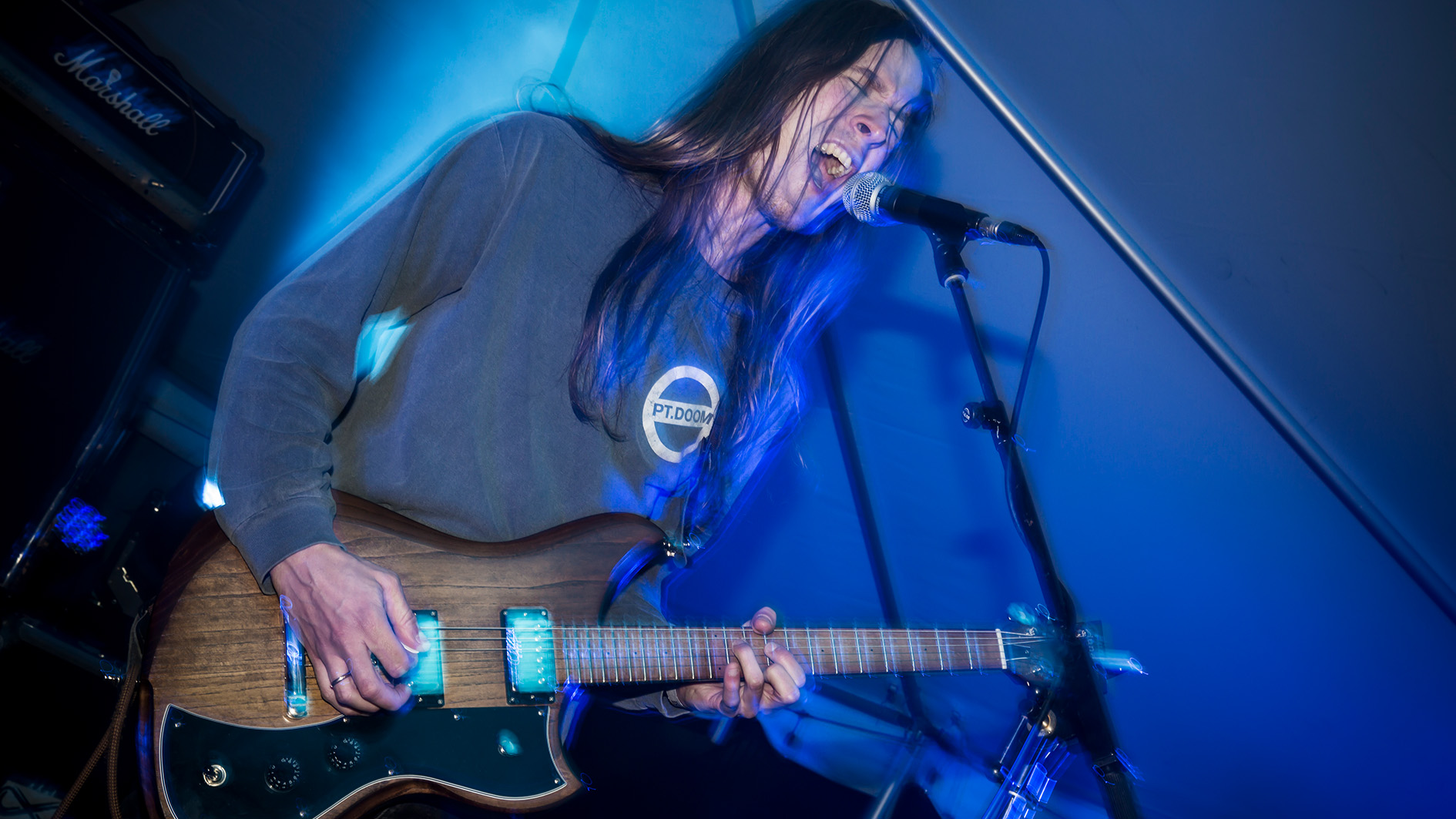
It is always a weird feeling when you strip something out of a mix and then it ends up sounding bigger.
“Yeah, especially on the last track, One Light Retreating, the final spacey, Pink Floyd-ish bit, we had a keyboard lead that was supposed to carry it for about a good minute and we ended just having some kind of reverb drone that just sounded so nice after 50 minutes of loud music. Yeah, it is a funny effect, but also, if you think about it, ‘Okay, this is going to be the last song. We need to make sure that the dynamics go up and down across the whole record.’ It helps for the final song.”
Jonathan Horsley has been writing about guitars since 2005, playing them since 1990, and regularly contributes to publications including Guitar World, MusicRadar and Total Guitar. He uses Jazz III nylon picks, 10s during the week, 9s at the weekend, and shamefully still struggles with rhythm figure one of Van Halen’s Panama.



